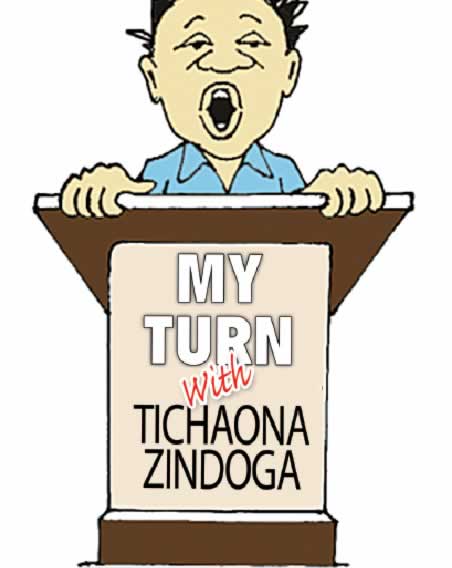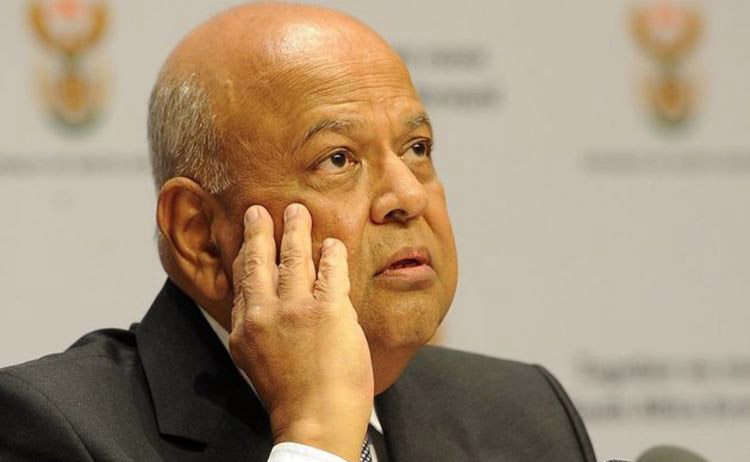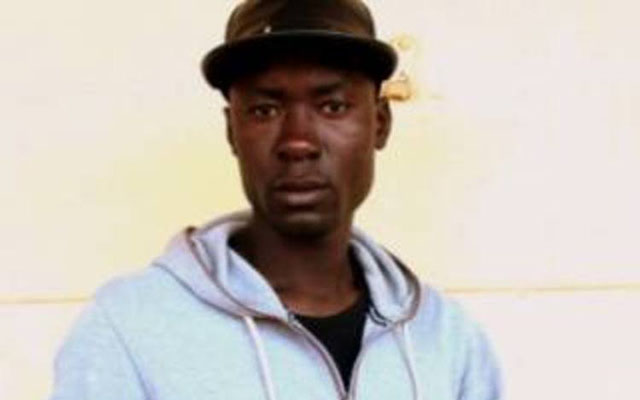Curious case of SA Judiciary, democracy

 ON Thursday last week, the courts here in South Africa gave a judgment that gave the nation a shock, once again. Giving shocking and unexpected judgments and rulings is not something the judiciary is not exactly unaccustomed to; we have seen and heard of various decisions that have taken people aback and outraged the nation.
ON Thursday last week, the courts here in South Africa gave a judgment that gave the nation a shock, once again. Giving shocking and unexpected judgments and rulings is not something the judiciary is not exactly unaccustomed to; we have seen and heard of various decisions that have taken people aback and outraged the nation.
They may do with a little recounting here.
But Thursday was very significant, in a high political noon as it appears here.
The Northern Gauteng High Court gave President Jacob Zuma five working days to disclose reasons for axing former finance minister Pravin Gordhan and his deputy Mcebisi Jonas.
President Zuma was asked to produce the record of the proceedings leading to his decision as well as any other documents, correspondence, memoranda, or advice he had received and which caused him to reshuffle his cabinet and fire Gordhan and Jonas.
The context in which this happened is interesting.
President Zuma made a cabinet reshuffle last month that affected close to a dozen people and Gordhan and his deputy were among the casualties.
Gordhan was the highest profile victim, so much so that it seemed that the whole exercise was about him and him only.
Perhaps it was.
Gordhan had fallen out with President Zuma and he became openly oppositional and arrogant (read somewhere as he dared the President to fire him).
He did not appear too keen to pursue the policy and vision of President Zuma, either.
Within the matrix and dynamics of power struggles that are taking place in the ruling ANC party, Gordhan became a kind of factionalism mascot of those opposed to President Zuma.
It would be recalled that things reached a climax at the time of the death of Ahmed Kathrada, a struggle stalwart who, coincidentally, was critical of President Zuma.
Kathrada had an expressed wish that when he finally joined his contemporaries such as Nelson Mandela in heaven, President Zuma should not attend or speak at his funeral.
It was duly honoured and quite opportunistically, the funeral became of a festival of Zuma bashing and factionalism politicking.
Gordhan spoke at this funeral and some other places portraying a political martyr of himself.
And he got sympathy, lots of it, from other places including the markets that dutifully caught a cold, with some rating agencies fatally classifying South Africa credit ranking as “junk”.
Gordhan had another, unlikely ally in the opposition, with the Democratic Alliance approaching the High Court seeking to have President Zuma effectively overturn Gordhan’s sacking on the ground that it was irrational.
Or some such reason — that doubts the President’s capacity to make an informed choice in the exercise of his executive prerogative.
The matter was political from the outset.
The President’s powers, and those of the Executive and the ruling party were being challenged.
The matter was not just another case of jurisprudence.
It was political.
But Judge Bashier Vally flew right into the storm and gave his ruling.
It is a case that has excited a lot of emotion.
The judge, and the Judiciary have been accused of being used to fight political wars and effectively meddling in Executive functions and decisions, assailing the democratic ideals of separation of powers.
And this is not the first time.
For a number of times, the courts have been seen to oppose the Executive, suggesting a process and trend in which the majority party and its leader have been curtailed not by the will of the majority but a clique of elites.
A recent example is when the courts all but quashed the Executive decision to leave the International Criminal Court. On the main, there has been a lot of ‘lawfare’ between the ruling party and the opposition in the country with the latter seeking every legal turn over and around political battles.
There have been rather mixed outcomes, though, but such major issues as these ones often stick out.
They stick out in all ugliness, as in enchanting beauty.
This is South Africa.
This is democracy.
This is the democracy that through these very same courts has given precedence and effect to strange phenomena, including gay marriages and just recently legalising marijuana.
Yes, that was the Western Cape High Court at the end of March.
But let’s return to the issue of Judge Vally and the reshuffle ruling.
A colleague at the University of Witwatersrand and seasoned journalist, Enoch Sithole, says there is nothing out of the ordinary about the ruling.
In fact, quite illustratively, he says there is no decision in the land that cannot be challenged from the so-called presidential prerogative to the home.
“Our constitution offers no unchallengeable prerogative, at all,” says he.
“Effectively, any decision taken by anyone, even on private affairs, can be challenged in the courts. We have seen appointments of church leaders and tribal chiefs being challenged in courts and judgments being given. Even my child can take me to court over some decision I could make over him,” he rhapsodises.
The decision and circumstance are not entirely and exactly new.
In 2012 the DA applied to the Concourt to have President Zuma’s appointment of Menzi Simelane as National Director of Prosecutions reversed. The court found the appointment to be “irrational”, something that the DA wants to apply in the sacking of Gordhan and replacement with Malusi Gigaba.
A further corroboration may suffice.
In 2014, Deputy Chief Justice Dikgang Moseneke actually supported the idea of the courts curtailing the Executive.
He said at a function: “The vast powers of the appointment of the national executive bring to the fore the debate whether the democratic project will be best served by a powerful central executive authority. Our courts have had to adjudicate challenges against the rationality of several appointments made by the President.
“It is self-evident that an appointment by a deliberative collective is less vulnerable to a legal challenge of rationality than an appointment by an individual functionary. The ultimate question is how best we may shield appointments of public functionaries to institutions that gird our democracy, from the personal preferences and vagary of the appointing authority.”
That is in black and white, coming from a black judge.
But things are not always seen that way as the spectre of colonialism and apartheid is often seen and imagined in how courts here operate.
That is, paradoxically, in black and white!
We have pointed out that this is just how ugly and beautiful it is in today’s South Africa.
By the way, Zimbabweans in the know, would tell you they nurse certain fundamental grievances against the South African bench — which smells of certain racist Rhodesian elements and their sympathisers — and have seen some particularly hostile judgments in recent years.










Comments